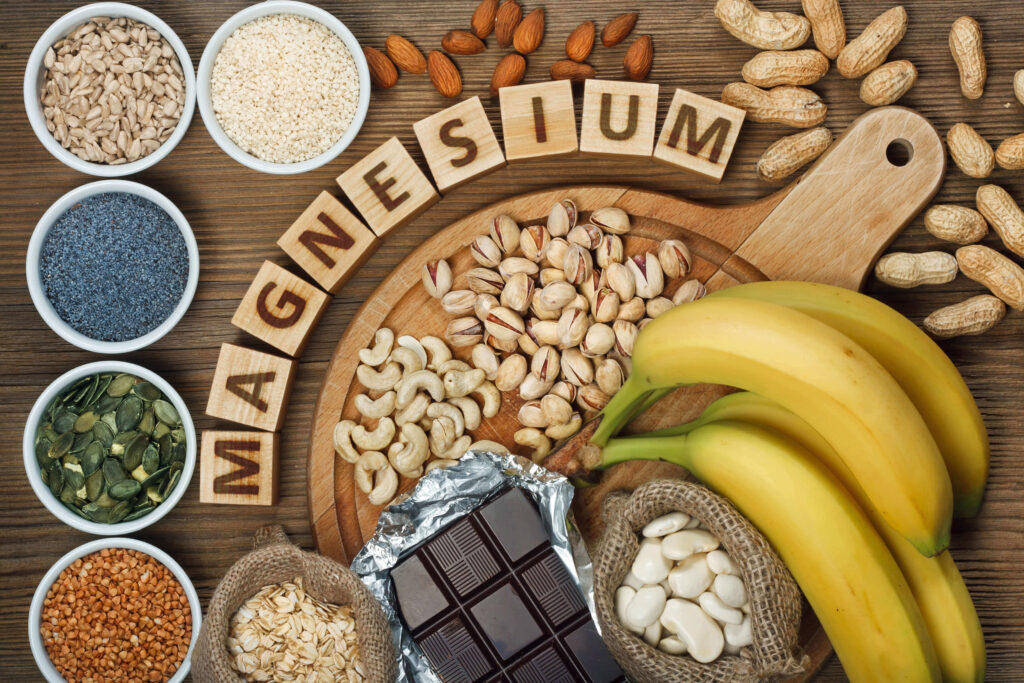Unlocking the Power of Magnesium: Deficiency and Vegan-Friendly Sources

Magnesium is a vital mineral that plays a crucial role in numerous bodily functions, including energy production, muscle function, and bone health. While many associate magnesium with dairy products, it is important to note that a well-planned vegan diet can provide ample amounts of this essential nutrient. In this article, we will explore the importance of magnesium, signs of deficiency, and discover vegan-friendly sources to ensure optimal magnesium intake.
Understanding Magnesium and its Importance: Magnesium is a mineral that acts as a cofactor in more than 300 enzymatic reactions in the body. It plays a crucial role in energy production, muscle and nerve function, protein synthesis, and maintaining healthy bones. Additionally, magnesium supports cardiovascular health, regulates blood sugar levels, and promotes optimal immune system function.
Signs and Symptoms of Magnesium Deficiency: Magnesium deficiency, also known as hypomagnesemia, can lead to various health issues. Common signs and symptoms include muscle cramps, weakness, fatigue, irritability, headaches, and abnormal heart rhythms. Long-term deficiency may contribute to chronic conditions like osteoporosis, cardiovascular disease, and diabetes. It is important to recognize these signs and take appropriate steps to address magnesium deficiency.
Vegan-Friendly Sources of Magnesium: While dairy products are often highlighted as sources of magnesium, there are several plant-based foods that can provide adequate amounts of this mineral. Here are some vegan-friendly sources to incorporate into your diet:
- Nuts and Seeds: Almonds, cashews, pumpkin seeds, and sunflower seeds are excellent sources of magnesium. Snack on a handful of these nutrient-rich foods or sprinkle them over salads, cereals, or yogurt alternatives.
- Legumes: Beans, lentils, and chickpeas are not only rich in protein and fiber but also contain significant amounts of magnesium. Add them to soups, stews, or salads for a magnesium boost.
- Whole Grains: Whole grains like brown rice, quinoa, oats, and whole wheat are not only a great source of dietary fiber but also provide magnesium. Enjoy these grains as a side dish, in salads, or as a base for plant-based bowls.
- Leafy Green Vegetables: Leafy greens such as spinach, kale, and Swiss chard are packed with magnesium and other important nutrients. Incorporate them into your salads, stir-fries, or green smoothies to boost your magnesium intake.
- Dark Chocolate: Indulge in a small piece of dark chocolate with a high percentage of cocoa (70% or more). Dark chocolate not only satisfies your sweet cravings but also provides a decent amount of magnesium.
Supplementing Magnesium on a Vegan Diet: While obtaining magnesium from whole foods is preferable, some individuals may need to supplement their intake. Vegan-friendly magnesium supplements are available in various forms, including magnesium citrate, magnesium glycinate, or magnesium oxide. It is important to consult with a healthcare professional to determine the appropriate dosage and form of supplementation based on individual needs.
Enhancing Magnesium Absorption: To maximize magnesium absorption, consider the following tips:
- Soak and Sprout: Soaking and sprouting nuts, seeds, and legumes can help reduce the presence of phytic acid, which can inhibit mineral absorption.
- Pair with Vitamin D: Vitamin D enhances magnesium absorption. Spend time outdoors to allow your skin to naturally synthesize vitamin D, or consider a vegan-friendly vitamin D supplement if needed.
- Optimize Gut Health: A healthy gut microbiome aids in magnesium absorption. Consume probiotic-rich foods like sauerkraut, kimchi, or vegan-friendly probiotic supplements to support a healthy gut.
Conclusion: Magnesium is a crucial mineral for overall health and well-being. While dairy products are often associated with magnesium, there are numerous vegan-friendly sources available. By incorporating magnesium-rich foods into a well-planned vegan diet or considering appropriate supplementation, you can ensure adequate magnesium intake and prevent deficiency. Prioritize your health by embracing the power of magnesium and nourishing your body with a diverse range of plant-based foods.




